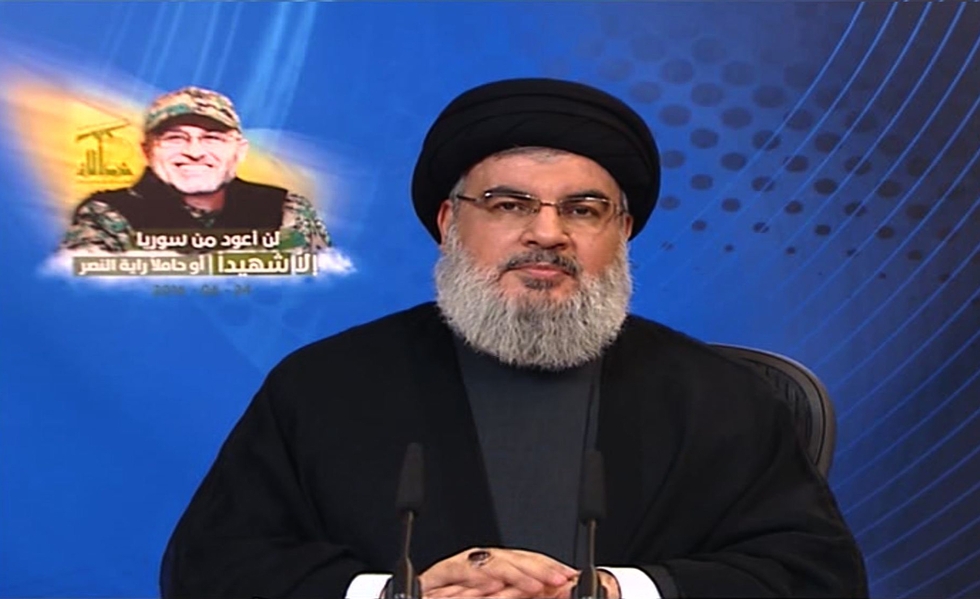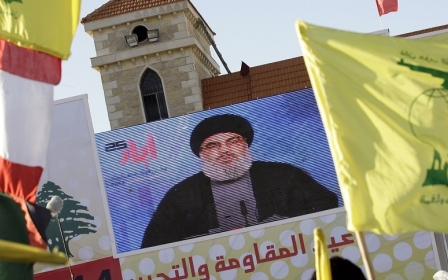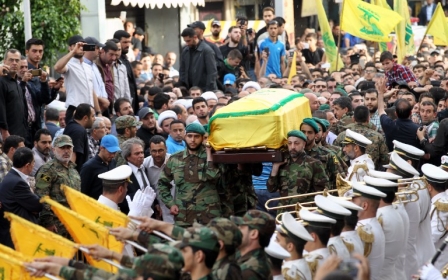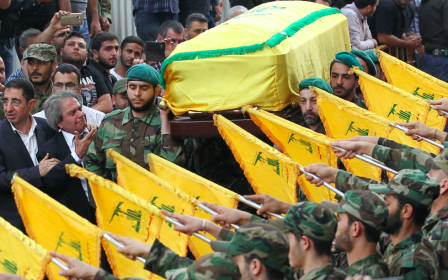Hezbollah at odds with Syrian government over 'impossible' Aleppo battle: Report

Hezbollah is reportedly refusing to back Syrian government forces in a proposed attack on Aleppo, arguing that the city – a bastion of the Syrian uprising – is "impossible" to take, according to a report by an Italian news agency citing sources within the Lebanese Shia movement.
Hezbollah has been a key ally of Syrian President Bashar al-Assad during the country's five-year war but AdnKronos International (AKI) - which is headquartered in Italy but covers Arabic-language news - said on Wednesday the group had strategic differences with the government over its plans to recapture rebel-held areas of Syria's largest city with the aid of Russian air support.
Hezbollah sources close to the group's military operations in Syria told AKI: "We realised that it is impossible to take over the city, and thus it is dangerous to increase expansion without securing the areas neighbouring the expansion. This is in addition to the party suffering losses in its forces and in Iran-aligned forces.
“The party stressed to the Syrian forces that a battle such as this needs 100,000 fighters at least on the ground to succeed."
AKI also quoted a journalist embedded with Hezbollah forces who said: "[Hezbollah] sent a clear message to [the Syrian government] regarding this matter, because the city of Fallujah in Iraq needed 40,000 fighters and several months of fighting. This Iraqi city is very small compared to the sprawling city of Aleppo.
“But government forces are not convinced by this message and insisted on continuing,” he added. “They will most likely realise their mistake soon.”
This difference of opinion, the journalist said, had led Russia to draw its own strategic red lines, essentially saying that Russian air support was for defensive, not offensive, purposes.
"I am not confident that an offensive on Aleppo will take place in the foreseeable future," Russian ambassador to Syria Alexander Kinshchak told Interfax on Tuesday. "As for Raqqa, in this case I would also like to refrain from any certain forecasts regarding its liberation."
Reports of splits in the pro-Assad alliance come just days after Hezbollah secretary general Hassan Nasrallah came out forcefully in favour of the “greatest battle” in Aleppo:
In remarks broadcast over the group's al-Manar television station, Nasrallah said his party would "increase our presence in Aleppo... because the real, strategic, greatest battle is in Aleppo and the surrounding area".
"We are facing a new wave, or a new phase, of military operations in Syria that will be fought in the north, specifically in the area of Aleppo," he said.
"Fighting in defence of Aleppo is in defence of the rest of Syria, of Damascus. It's in defence of Lebanon and Iraq and Jordan.
"This is why it is our duty to be in Aleppo, and we were - and we will stay in Aleppo."
He also announced that 26 Hezbollah fighters had been killed in the offensive this month, in a rare admission of casualties for the group.
The Syrian conflict is purportedly the deadliest conflict in which Hezbollah has been involved since it was set up in the 1980s to fight the Israeli invasion of Lebanon.
Hezbollah has sent thousands of fighters to Damascus, Aleppo and Homs provinces, and up to 1,500 are estimated to have been killed.
They include Mustafa Badreddine, formerly Hezbollah’s top military commander, who was killed last month in contested circumstances in a secretive command facility near Damascus airport.
One account of Badreddine's death suggested that he had been killed by Syrian or Iranian fighters as a result of an argument over Hezbollah's presence in Syria, and said he had been planning to withdraw many of Hezbollah's fighters to Lebanon because of the heavy losses sustained by the group.
Aleppo - once Syria's industrial and economic hub - has experienced a surge in violence over the past two months amid clashes between government forces in the west and rebel groups in the east.
Government forces, backed by Hezbollah and by Russian warplanes, are now seeking to close off the last rebel route out of the city.
New MEE newsletter: Jerusalem Dispatch
Sign up to get the latest insights and analysis on Israel-Palestine, alongside Turkey Unpacked and other MEE newsletters
Middle East Eye delivers independent and unrivalled coverage and analysis of the Middle East, North Africa and beyond. To learn more about republishing this content and the associated fees, please fill out this form. More about MEE can be found here.




